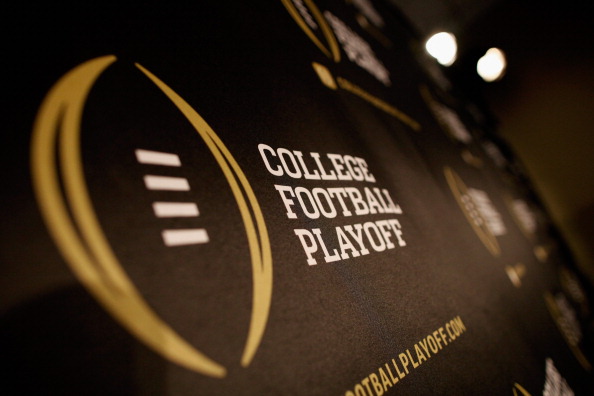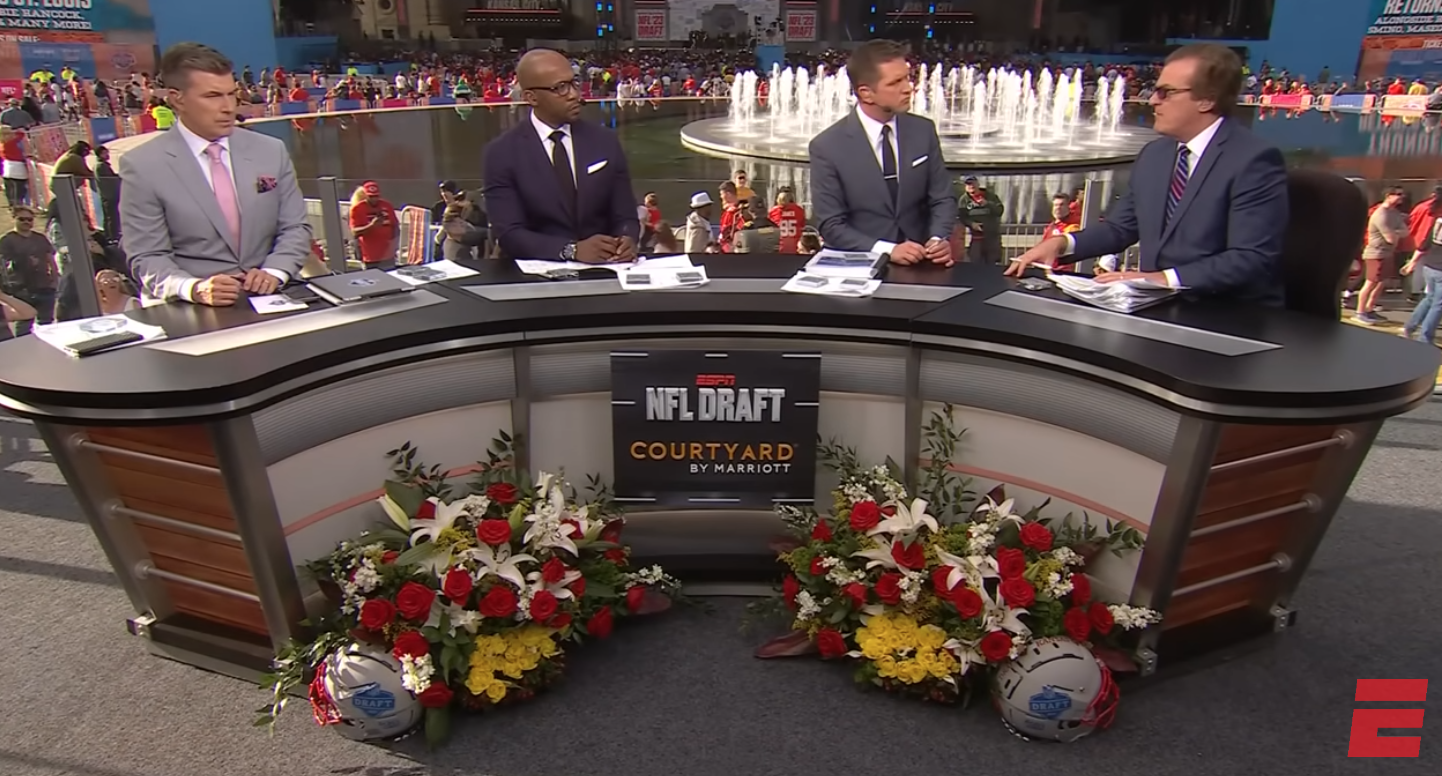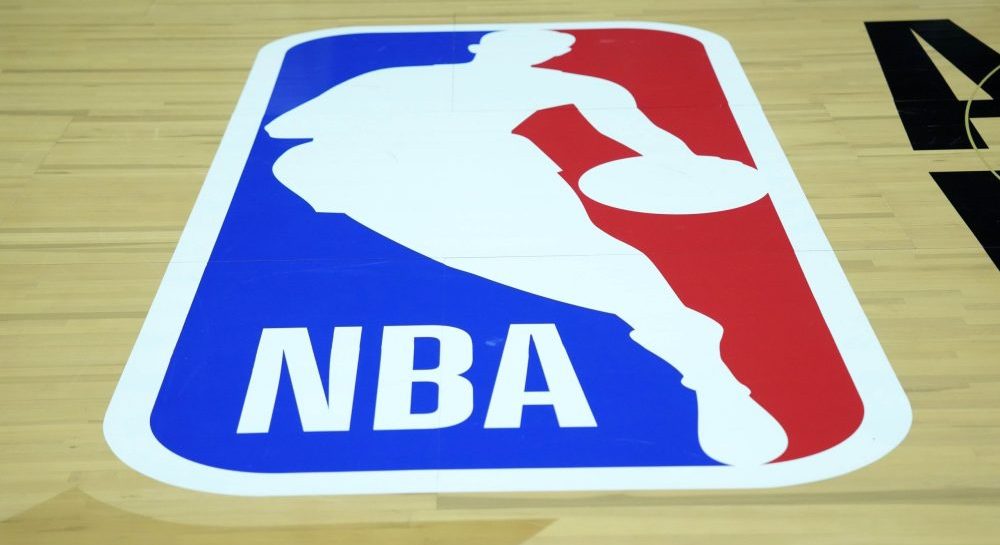Instead of listening to pleas for common sense to change last year’s College Football Playoff schedule that centered the semifinal games on New Year’s Eve, execs buried their heads in the sand.
The result? One of the sharpest ratings decline for a sporting event ever seen. Moving the College Football Playoff semifinals from the perfect spot on New Year’s Day to New Year’s Eve meant a decline for the two games of 22.4 MILLION VIEWERS combined. The average audience fell sharply from an average of 28.25 million to 17.05 million. And that wasn’t all, ratings for the entire New Year’s Six were down 13% overall from Year 1 to Year 2.
The amazing thing is that literally everyone could see it coming. And I don’t mean to use the the word “literally” in hyperbole. I mean it, well, literally. Even the stubborn executives that made this decision knew what they were getting into. Executive Director Bill Hancock said before the ratings for the playoff cratered, “This event will thrive on New Year’s Eve and we did know about New Year’s Eve almost from the start.” Well, at least it’s good to know it didn’t sneak up on them.
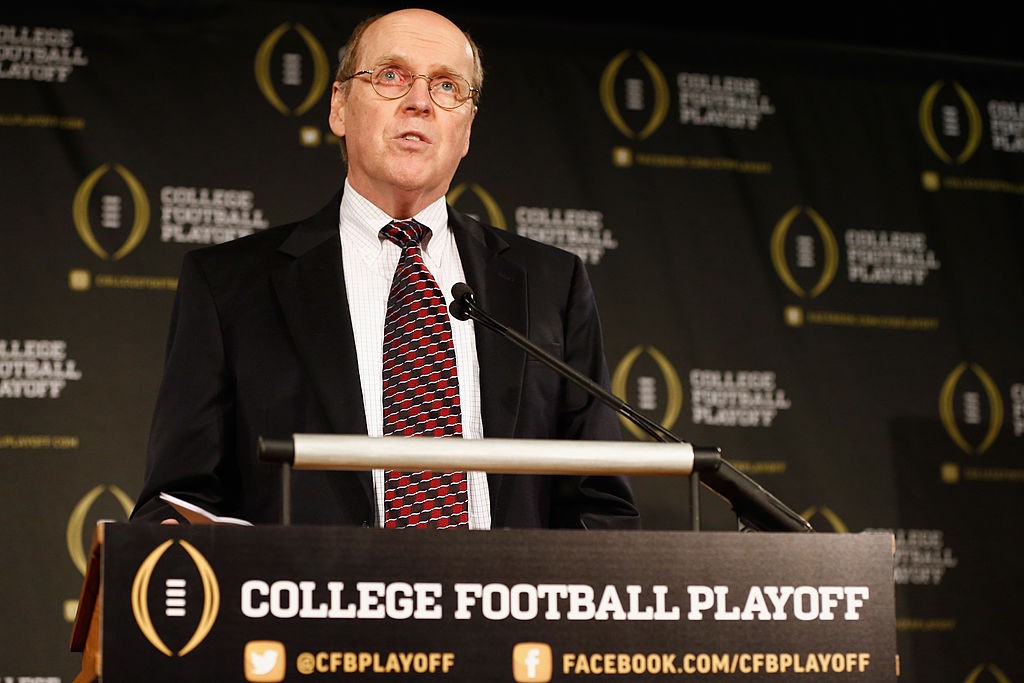
So did the playoff powers finally come to their senses after seeing the numbers? Of course not! First, they blamed the lack of competitive games in the semifinals. This, in spite of the fact that neither game was as big of a blowout as Oregon’s demolition of Florida State the year prior.
Second, in making the schedule for the 2016-2017 edition, the College Football Playoff only added to the quagmire of confusion and contradictions.
This coming season, the semifinals in the Fiesta and Peach Bowl respectively will be played at 3 PM ET and 7 PM ET with start times moved back one hour. The Cotton, Rose, and Sugar Bowls will all be played as scheduled on Monday January 2nd so as to not conflict with this little thing called the NFL.
The CFP gets a huge break this year because New Year’s Eve happens to fall on a Saturday so the ratings will rebound a good percentage from last year. However, the minor adjustment to the start times are somewhat puzzling because they could easily move up the kickoffs to, say, 1 PM ET and 4 PM ET, and get both semifinals done and dusted before folks head out for the evening. Even with the minor adjustments, you’re still in a quandary as to what to do for the second semifinal, especially on the east coast.
Those of you that are sports media and/or scheduling geeks might be thinking the same thing I’m thinking – wouldn’t that 1/4 PM ET idea conflict with the first of the New Year’s Six games that usually kicks off at 12 PM ET, which would be the Orange Bowl? No! Not this year! Because the CFP decided to make an arbitrary change to the NY6 schedule. Not for you – but for the bowl executives, because that’s who this whole thing has always been about.
The CFP will be moving the Orange Bowl off Saturday December 31st to a Friday night kickoff on December 30th. Why? Check out this quote from Hancock in the official CFP schedule announcement (bold emphasis added):
“As we committed earlier this year, we have looked at the landscape for the upcoming season and are confident that this change will make it easier for more fans to watch the games on television and also will benefit fans who will attend the games in person,” Hancock said. “The semifinals will be played on Saturday for the first time. The Capital One Orange Bowl will be in an evening time slot, which is its tradition.”
Although it may not seem like much on the surface, this decision exposes the truth about the soap the CFP has been trying to sell college football fans.
Hancock’s talking point in sticking with the December 31st date with the semifinals in two out of every three years (to submit to the authority of the Rose Bowl and Sugar Bowl being permanently etched on New Year’s Day) has always been the conviction that the playoff would “change the paradigm of New Year’s Eve.” He’s been committed to the idea that the semifinals could never be moved off New Year’s Eve no matter how bad the ratings are… and yet that’s exactly what they’ve done with the the other game scheduled for that day.
When the New Year’s Six was launched, the entire concept was a tripleheader on December 31st and a tripleheader on January 1st. Hancock has said the playoff semifinals were “absolutely locked” into New Year’s Eve. ESPN was glowing after Year 1 about how the Dec 31 tripleheader was “delivering on our goal of reclaiming the New Year’s holiday for college football fans.”
So why is it that the CFP can move one of the games off of those supposedly locked dates but not the semifinals? How can the New Year’s Six suddenly become the New Year’s Five Plus One.
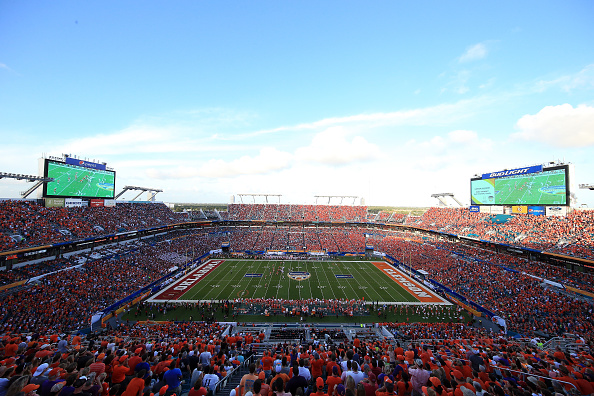
Why does the Orange Bowl get the special treatment of getting moved out of the Dec 31 tripleheader to be put in primetime the night before? The CFP can try to give the blanket response of “tradition” (aka $$$$) for every decision that they make, but it rings hollow here because the Orange Bowl just moved out of primetime for the first semifinal two months ago!
For that matter, why can’t they always play the early kickoff on December 31st in primetime on December 30th to ensure better numbers? The Florida State-Houston Peach Bowl drew only 5.6 million viewers on the afternoon of December 31st in 2015. In 2013, the Texas A&M-Duke game drew 8.7 million viewers in primetime on December 31st. Again, the inconsistencies run wild.
The CFP is going to get a reprieve this year and next from the pressure that’s been placed upon them to improve this situation for college football fans. This coming year New Year’s Eve is on a Saturday, which will mitigate much of the ratings damage from the most recent playoff. The following year, the semifinals thankfully move back to January 1st, where they should be permanently.
Nevertheless, the changes for this year’s schedule only send the message that the College Football Playoff is serving the interests of the bowl games themselves and not the fans. If that weren’t the case, they would put the semifinals on New Year’s Day permanently and be done with it. Instead, they choose to say one thing and do another, shifting the schedule around for what best suits the interests of the bowls from year to year.
That sadly shouldn’t come as a surprise to anyone. It’s just a depressing reality about the way things are and have always been. After all, that’s why it took decades to give us the playoff in the first place.

